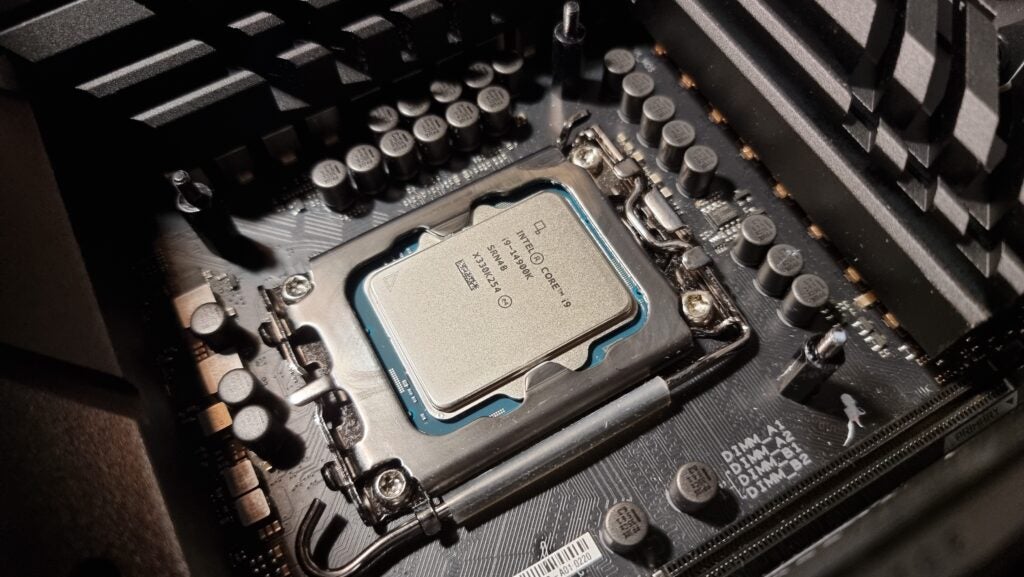Intel has launched the new Intel Core i9-14900KS, heralding it as the most powerful consumer desktop processor yet.
But with just a single letter separating it from the existing Intel Core i9-14900K, fans may be confused as to how the two chips differ.
To clear up any confusion, we’ve created this comparison guide to highlight the key differences between the Intel Core i9-14900KS and Intel Core i9-14900K. So without further ado, here are the key things you need to know.
Max clock speed increased to 6.2 GHz
The max clock speed is the only difference between the Intel Core i9-14900KS and Intel Core i9-14900K when it comes to performance.
The Intel Core i9-14900KS is capable of hitting an impressive peak of 6.2GHz, whereas the 14900K is limited to 6GHz instead. That may sound like a minor difference, but we still expect it to have a big enough impact to single-core performance, therefore impacting the performance for AAA gaming.
Intel hasn’t upgraded the core or thread counts of the processor, sticking to the 24 core and 32 thread setup. This means that anyone hoping for a significant multi-core performance boost may well come away disappointed.
Intel’s i9-14900KS consumes more power
The new Intel Core i9-14900KS processor has a 150W processor base power, which is an increase on the 125W figure of the Intel Core i9-14900K.
This essentially means that the Intel Core i9-14900KS will consume more power than its older sibling when running idle or completing basic tasks. This shouldn’t come as a surprise, since Intel is using the extra power to overclock the processor and achieve a higher clock speed.
Interestingly, the Maximum Turbo Power has remained the same as before at 253W. This potentially means there won’t be much of a difference in power consumption between these chips when both are dealing with heavy workloads. As a result, you probably won’t need to upgrade your PSU if upgrading from the Intel Core i9-14900K to the Intel Core i9-14900KS.


Both chips are based on Raptor Lake architecture
It’s important to note that both the Intel Core i9-14900KS and Intel Core i9-14900K are part of the same 14th Generation Intel Core family, and therefore share the most recent Raptor Lake architecture.
Moving onto new architecture can have a monumental impact on performance, especially when it involves reducing the size of the process mode and squeezing more transistors onto the chip. This is a big reason why so many fans are excited for the upcoming launch of the Intel Arrow Lake generation.
With this in mind, the Intel Core i9-14900KS is limited in terms of the performance uplift it can benefit from compared to the Intel Core i9-14900K. Nevertheless, the increased clock speed should still see a difference in gaming performance – but probably not enough to justify upgrading from the Intel Core i9-14900K.
Intel Core i9-14900KS is $100 more expensive
Great performance comes at a cost, with Intel setting the recommended base price of the Intel Core i9-14900KS at $689. This is $100 more expensive than the $589 price of the Intel Core i9-14900K.
It should come as no surprise that Intel is setting a higher price for this new chip, given the extra performance on offer thanks to the increased clock speeds. However, it’s important to ask yourself whether you’ll actually benefit from the performance boosts, as certain workloads (such as gaming) will benefit more than others.
We’re hoping to review the Intel Core i9-14900KS in the near future, so keep an eye on Trusted Reviews for our full analysis of the performance of the new processor to see whether it’s worth the extra cash compared to the i9-14900K.




